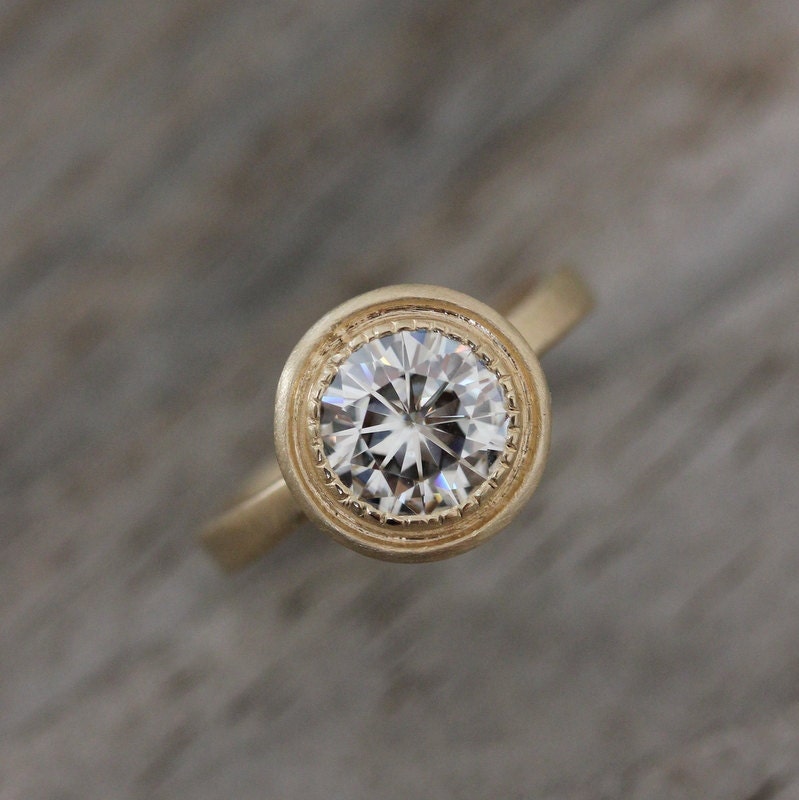
Look at that diamond above. Pretty, isn't it? I admit, before I started writing this, I went to etsy, where I had oft seen many such pretty, conflict-free diamonds. I thought it was only fair to remind myself, and you, dear reader, of what you're missing out on. As Those sparkling facets wink at you. They beckon, tempt and eventually seduce you."
But this post is about how diamonds a even more of a scam than I had imagined. Sure, diamonds are forever, but they're made up of one of the most common substances on earth. In its pure, non-compressed form, it resembles that graphite we put in our mechanical pencils (and actually, according to my Chemistry teacher, there is some decay, but that's not relevant for people who are not going to live for thousands of years). A diamond's durability is one of the few qualities it has that actually renders it useful, just as gold became valuable because of its malleability and the fact that it doesn't tarnish (sorry, silver). If you just want something shiny, try cubic zirconia. They're actually almost as hard as diamonds, and much superior in color, clarity, and price.
Most of a diamond's value though, comes from its rarity. A false rarity. Despite all of the horrors that come about from the mining of diamonds, really, they wouldn't be worth so much if De Beers hasn't boarded up so many diamond mines to keep demand higher than production.
Because of all these things, I had decided long ago that I wasn't going to pay a bunch of money for a shiny rock made of the most abundant element in the universe, only kept artificially rare, and quite likely responsible for bloodshed. Then I read an article. It isn't even a new article, but a reprint from 1982! It chronicles the history of just how much De Beers is screwing the American* consumer.
*Despite Cartier being a major purveyor of diamond engagement rings, most French don't wear diamond engagement rings. The best evidence I can find, other than the Atlantic article, is this forum.
To summarize, De Beers realized that they couldn't saturate the diamond market, so they decided to completely control it and limit production. They even made a deal with a Russian diamond company to sell small (less than one carat) diamonds for awhile until they started losing money on large diamonds.Their marketing campaign to convince Americans to buy more expensive diamond rings really started in 1938. Yes, there was a tradition of buying diamond engagement rings already, but with the help of Hollywood, they really cemented the connection between diamonds and romance. In three years, they had increased diamond consumption by 55% By the end of the 1950s (a time when many American traditions sprouted up) "[t]he message had been so successfully impressed on the minds of this generation that those who could not afford to buy a diamond at the time of their marriage would 'defer the purchase' rather than forgo it." In other words, people would put their lives on hold so they could buy not a home or a car or baby supplies, but a rock.
The real meat of the article though, is when it talks about how De Beers kept demand for diamonds up by convincing women to never sell their diamonds. Think of how many diamond rings are sold every year. For the past 70 years. If those diamonds were to ever enter the diamond market, there would be a huge fluctuation in price of diamonds. But these diamonds will never make it into the market, advertisers have convinced people that one should never sell one's diamonds. Even in death, they should be passed on to ones' heirs.
I have to admit that it's pretty hard to sell a ring that is supposed to be a symbol of your marriage (even if your marriage ends in divorce), but what about diamond necklaces, bracelets, and earrings? Basically, any diamond that you try to sell will go for less than half of what you paid for. Not even the jeweler you bought it from will take it back for close to full value (or even take it back at all). De Beers purposely keeps diamond prices stable by limiting production when needed. That price stability leads people to believe that diamonds are a good investment.
A n engagement ring, a wedding band, even an anniversary stone--they're more than jewelry--they're symbols of commitment. But don't fool yourself into thinking that they're fiscally viable. Why spend thousands of dollars on something that is only artificially valuable?
For more reasons on why you shouldn't buy diamonds, see this link.